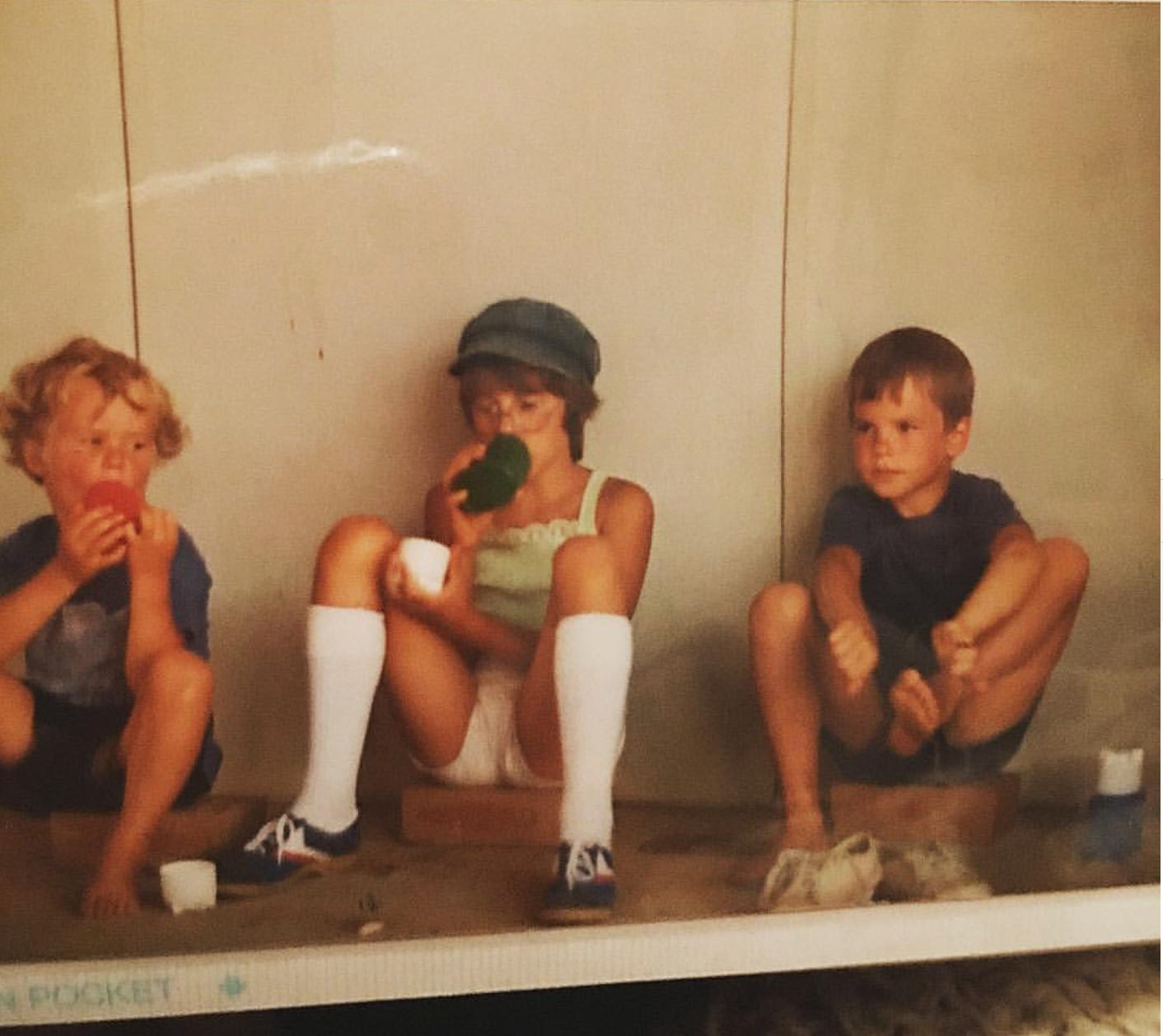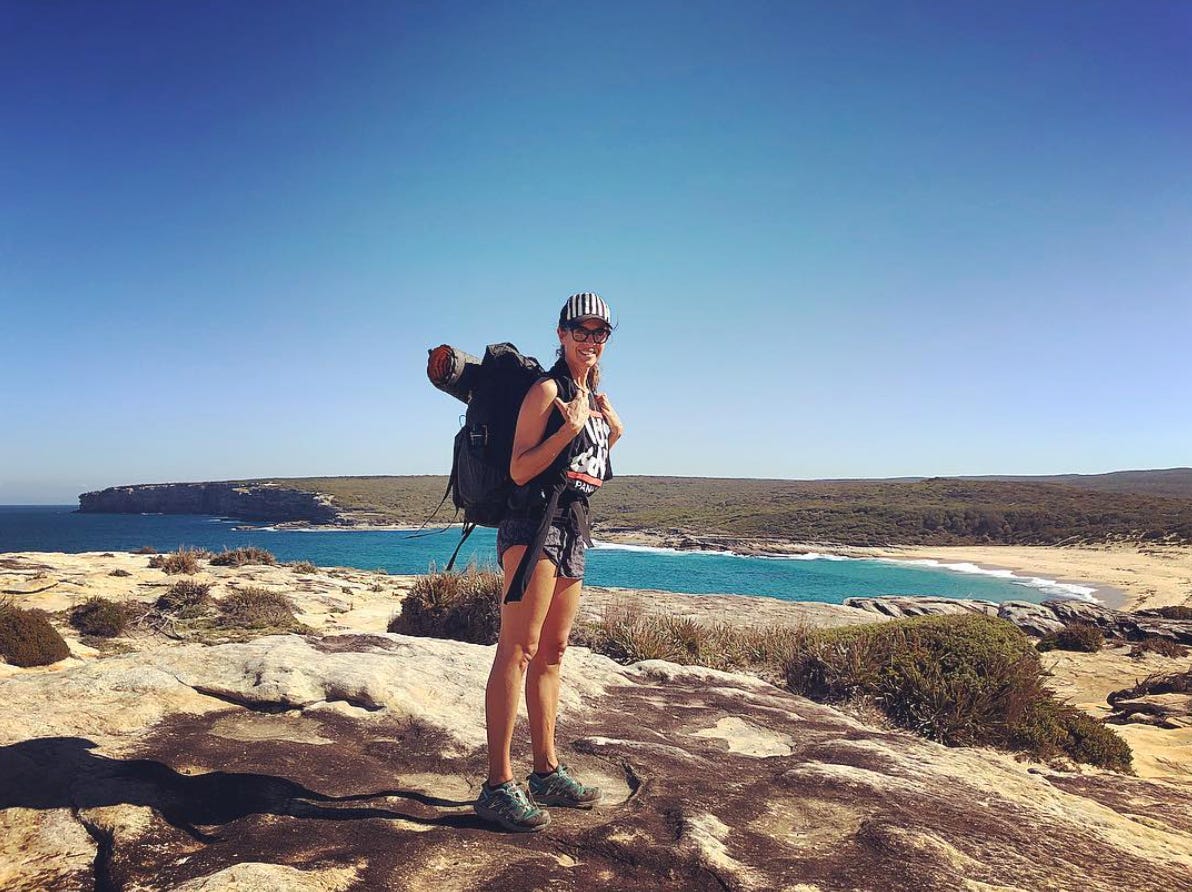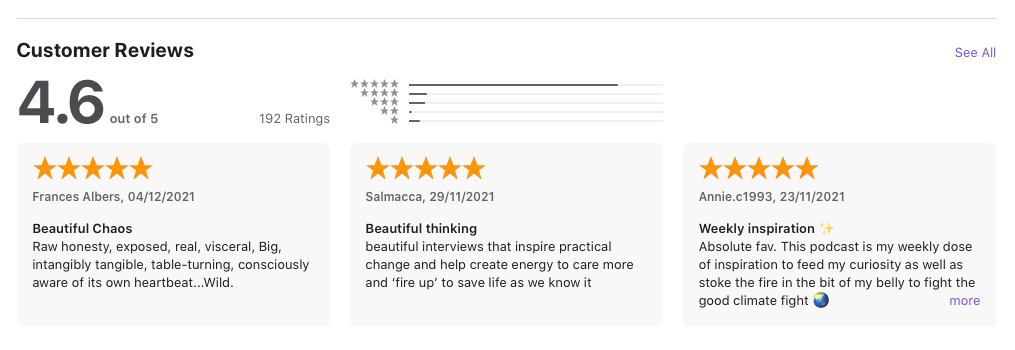How do we design a good life?
It’s a question humans (at least those with the luxury of time and freedom to ponder such things) have asked for eons. But the question takes on a very particular skew when asked from within an existential crisis.
(And, yes, it’s a truth I will not shirk from: we are in the existential downslide now.)
I have come to like the skew the question now takes. It instills urgency in me. The circumstances (the downslide) make the shoving aside of distractions and redundancies almost reflexive, requiring little work. And so I have noticed over the past three years that my focus and energy has become gloriously laser-sharp, denuded of all The Dumb Shit That Can Bog Down a Life. It brings me into a flow state previously beyond my grasp.
You might already know - at the end of each of my Wild podcast interviews I ask a question that draws my guests down to this stripped-back space. I ask:
“What is left if we lose it all?”
I also ask the question in This One Wild and Precious Life (which is currently 20% off at Booktopia). I ask it because I think it lays out the sturdiest of foundations from which a good life can be designed, or your garden can be cultivated, as Voltaire put it.

Here’s the passage... Do you mind if I include the preamble, too?
When I stand back, in my middle years, in all my yearning
aloneness, in my grief, in my endless and aching love of
humanity, this is what I know. This darkness we’ve found
ourselves in might just be the very thing that reconnects us
to life again. It's taken me to my ultimate edge. I lost friends
on this journey – which I had to accept is part of the growth
deal. I had to let redundancies drop off. But these strange times
that we can’t quite believe are here, also demanded that I step
into my biggest, most alive self. It’s made me look around and
love life in a more intimate way. It's made me question what
matters and hunt down – in something of a kamikaze fashion –
my true north. I had to find my resilience, my grit. I had to
come to terms with how appropriate and necessary my rage is.
I stopped apologizing for my Kali-esque rage, too. And I realized
perhaps it had to get this terrifying and lonely before
I – we – could connect as deeply and truly as I – we – hope we
will.
In Hermann Hesse’s Steppenwolf, Hermine says to Harry:
“Ah, Harry, we have to stumble through so much dirt and
humbug before we reach home. And we have no one to guide
us. Our only guide is our homesickness.” It’s a crackin’ truth.
…I go on…
I acknowledge the facts – the statistics are stacked against
us. And I pay a solemn nod of respect to the spiritual truth –
that death, and species extinction, are a part of life. And
yet I am wholly and vibrantly motivated to fight for life in
the meantime. Not my life. But Big Life. Our Life, together.
That “meantime” might be a very long time. And so – in the
meantime – this way I’ve walked with you here serves as a
wild and precious way to live. Like, really live.
Wrestling with the darkness has left me more committed
to this path than I could ever have imagined. And with one
last beautiful question that guides me in my most personal
moments: “What is left if we might lose it all?” My answer gets
more beautiful by the hour: nature, humanity, and my wildly
alive love of it all.
Can I ask you here, what is left for you, when everything else is hypothetically stripped away (as indeed more of it will be in coming years)? And are you willing to design your life around your answer? Immediately? When you’ve got your answer, perhaps see if the blueprint for a good life sprouts…
Them Wild interviews I mention?
You might like to hear how Tim Brown, David Whyte and Clare Du Bois answer the question, “What is left if we lose it all?” You can go straight to the interviews here.
Also, I currently have a 4.6 rating on Apple, which I’m thrilled about. If you reckon it’s worthy of a 5/5, I’d just love you to click here and submit five stars (and if you don’t, I’d rather you go do something else! Ha!).
Here, my favourite Carl Jung quote
a brutal tool for designing a good life
“No one can build you the bridge on which you, and only you, must cross the river of life.”
The line is a slap-slap-slap to our victimhood, to that horrible stalling habit we have of thinking we have to wait for The Almighty Instruction Manual on How to Get Life Right before we live our truest existence. It’s the command to bloody well just do the moral wrestle with ourselves. Implicit in the command is also the promise that we will find our truest, best self while wrestling and that - yep - we will cross the river (because we must!). So get wrestling!
How to heed the command? How to wrestle well? Me, I write to myself. I converse with my inner Sarah, on random scraps of paper, regarding how certain decisions, projects and people sit with me. I think of the “thing”, witness my bodily reaction (cringe, gut churn, tingles, upward rush of heat) and re-evaluate, constantly. It’s a funny, whispery, conspiring and intimate chat.

I do things that see me step out of the standard rut…I hitchhike, I camp solo, I write social posts that many would deem “not allowed” for an Australian woman, I “soul nerd” (study deeply for the purposes of knowing thyself and thy fellow humans), I don't punish myself for bucking societal expectations (not getting married, having affairs with wildly inappropriate men, not having kids, writing about this kind of stuff here) and instead try to smile fondly at how my life has turned out… and so on.
Of course, everyone’s bridge building should look different.
But if I was to drill it down, I’d say learning to dig having a relationship with yourself is the bridge. And also the destination.
I don’t do hobbies
a fact I’ve recently realised doesn’t leave me lacking in character
I don't garden, knit, bottle things, join clubs or fingerknit. I’ve tried them all and they just seem very frittery.
My friend Jeanine is the same. We also both think baths and candles are… pointless.
If you’re the same, you might like this Atlanic article that argues that hobbies are a capitalist confection. Following the Industrial Revolution, reduced working hours saw an increase in idleness and, thusly, things like saloons and amusement parks. They were subsequently deemed a threat to the ruling class.
And so hobbies were pushed out to the masses as a wholesome fix, much as the Romans handed out bread and circuses. They were particularly pushed during crises. Which makes me think back to when the Australian Prime Minster declared jigsaw puzzles an “essential item” when Covid first hit…
I’m sorry, you need to know this: We’ve just passed the chemical pollution boundary
a new series of harsh climate truths I feel I need to run
Would you mind if each 'letter I include important climate news that should trigger us into fired-up care and action, but is so often buried? I'll keep things short and sharp and helpful. So...chemical pollution boundaries. Climate change (the warming of the planet from rising greenhouse gases in the atmosphere) needs to be our main climate focus. (I know some folk fret whether they should worry about plastics in our oceans or whether their neighbour recycles or...but it's worth knowing that A heating planet from greenhouse gas emissions - from fossil fuels - is our number one threat by a global mile).
That said, this new finding must not be buried:
The massive dumping of chemical pollutants onto Planet Earth has just passed the safe limit for humanity.
Need some watercooler points to bring it home?
1. There has been a 50-fold increase in chemical production since 1950.
2. This figure will triple again by 2050. You know, a 300% increase.
And the killer factlet…
3. The chemical pollution planetary boundary is the fifth of nine that scientists say have been crossed, with the others being global heating, the destruction of wild habitats, loss of biodiversity and excessive nitrogen and phosphorus pollution.
I just thought you should know, amid the noise…
Finally, I urge every Australian (at least) to watch a few important moments in our history.
Grace Tame and Brittany Higgins speaking at the National Press Club today…watch it here. “Our strength is their pain. The higher we rise, the harder they try to regain control.” - Grace Tame to a room full of politicians!
The Ms Represented series by Annabel Crabbe. I know men who watched it, especially episode 2, who cried. One, my mate Chris, said it was his penny-drop moment. Download it here.
For some balance…I loved this Sesame Street special. There’s a bit where they talk to kids about death. Big Bird can’t find Mr Hooper to give him a present (I remember this episode vividly) and Gordon and Maria have to tell him that he’s gone. “OK, I’ll come back later and give it to him.” No, Big Bird, he’s gone forever. Big Bird asks, “But why?”. He’s baffled. Gordon holds him and says gently, “Because, just because”.
Over and out, comrades. Look forward to feedback and insights in the comments below.
Sarah xx





This may be petty of me, that the thing I am commenting on from your awesome and wholesome 'letter is what you refer to as "frittery" and "pointless"... but alas, I am.
Hobbies. I garden, I knit, I bottle things... and many other pursuits that have been called "hobbies". I personally don't use the word, because ironically enough, to me that belittles these activities and makes them seem "pointless", like "frittery" even. But if you want to call them hobbies, knock yourself out.
My gardening hobby means that I grow the majority of our fresh produce and many of our meals have just 10 meters of food miles.
My bottling hobby means that the excess produce I grow continues to feed us through the year and the seasons, with real food, no middle men, and the satisfaction of physical effort on our part. No shopping required.
My knitting hobby means I can go to an op shop, buy second hand wool or a large wool garment that doesn't fit for $5, undo it and turn it into whatever I need.
My sewing hobby is likewise. I mend and patch and mend and patch and alter and recreate and never buy new clothes and only buy second hand clothes once the fabric has gone to holes.
A friend of mine makes candles, she also happens to be one of the most decent human beings on this planet and for her, candle making feeds her soul and brings her joy. The world would be a lesser place without her "frittery" in my opinion.
I also know of a gentlemen who does finger knitting as a hobby. He creates masses of items out of second hand wool for various charities. He loves his self-proclaimed "hobby" and there are people and animals in need that are warmer because of it.
And Sarah, I've gotta say it, there are many people that would call your hikes a "hobby"... please feel that.
I do not disagree that the idea of pointless hobbies are something of a "capitalist confection", created and pushed to dull us into idleness. And yes, there are those who garden or knit or bottle because their insta feed tells them it's fashionable. And yes, our PM with his "essential jigsaw puzzles" simply proved for the umpteenth time that he is a condescending, capitalist muppet.
But I would hope that as we fight for better inclusivity and awareness of all things, that we could learn to be more careful of labels and the baggage that we place upon them with our personal opinions and use of words.
In my opinion, if you undertake a task with no point in the effort or the outcome, it is as you say, pointless. There are many things that could fit in this category beyond hobbies, including many paid jobs and many accepted, respected and aspirational pursuits.
But if you undertake that same task, with purpose and mindfulness, it can cease to be pointless.
If a task/activity/pursuit/hobby can bring meaning and purpose and joy to a person, that person can be a better human.
You ask "what is left if we lose it all?"... if we lose our meaning and purpose and joy, then the answer is "pointlessness". So if a "hobby" can help to bring a person those things, it's not so pointless.
Sarah, I was interested in the article and your comments on hobbies. I must admit, I see our proclivity towards hobbies as a very natural human condition. Reflective even of some of our best instincts, desires and nature. And I’m not sure I agree they are a particularly modern phenomenon. Of course it might be true that social and economic trends have made the practice of hobbies more accessible to more people in modern times, that collective feelings of anxiety encourage their practice, that capitalism has hijacked them to an extent, that they have been recently ‘moralised’, and that, taken to extremes, the practice of hobbies can cause harm. But surely the human tendency to focus our attention keenly and consistently on a particular activity with a view to mastering it, for no reward beyond the pleasure and satisfaction we gain from the practice (serious leisure, as the article puts it), is not something we have been persuaded into recently. Rather, surely that tendency is born of some combination of: our deep desire for knowledge (and mastery) of the world around us; our quest to find meaning or even the divine in the everyday; our inherent creativity and desire to express it; our appreciation of a repetitive, meditative practice? Like Deb suggested, perhaps it comes down to how we define a hobby, but I certainly don’t limit my definition to what’s sitting on influencers’ windowsills this month. Eg research and reading count as hobbies for me! And if one has motives for a hobby beyond mere pleasure, eg income or mental health benefits, does it cease to be a hobby? I doubt it. Of course, perhaps I’m wrong about all of this, and I’m really just defending the enormous amount of time I spend gardening!